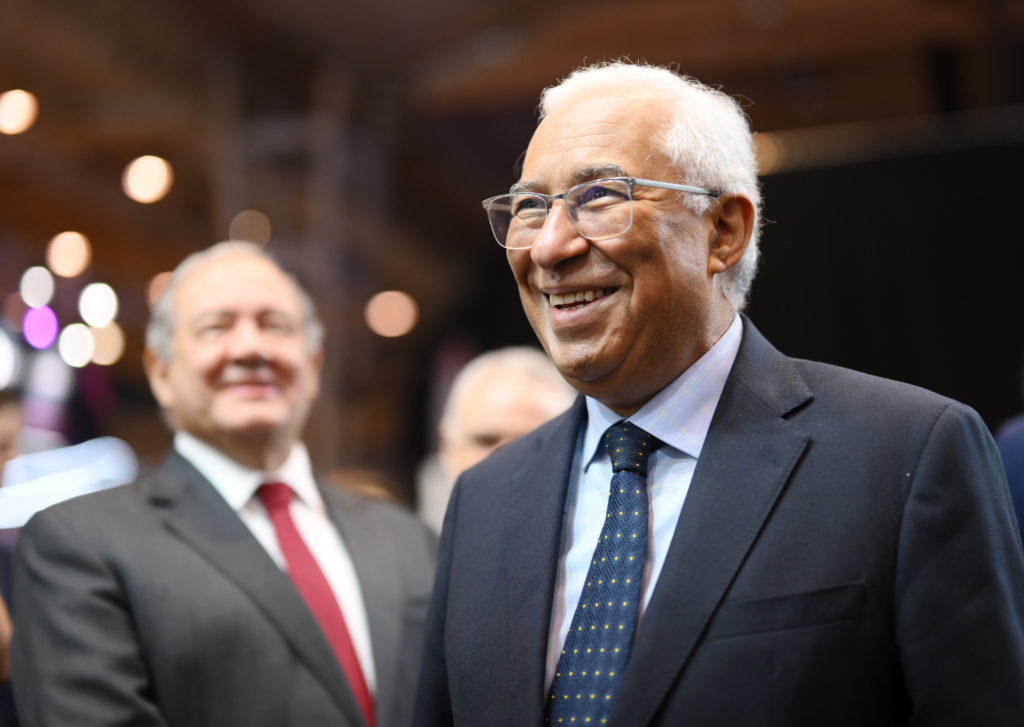
Portuguese Prime Minister Antonio Costa resigned amid an investigation into possible crimes of corruption in government involving lithium and hydrogen projects.
“Today I was surprised by the information, officially confirmed by the public prosecutor’s office, that a criminal process has already been or will be initiated against me,” Costa said. “Obviously I am fully available to collaborate with the justice system in whatever is necessary to uncover the whole truth. However, it is my understanding that the dignity of the function of prime minister is not compatible with the suspicion of any criminal act, which is why I obviously presented my resignation.”
Costa said in his speech in Lisbon that he has a “clear conscience” and won’t run in the early elections that the Portuguese president will likely call. Portuguese stocks fell, with the benchmark PSI index dropping 2.5%.
The Portuguese Prosecutor-General’s Office said in an emailed statement on Tuesday that Vitor Escaria, the premier’s chief of staff, was among five people detained as part of an ongoing probe related to lithium exploration concessions and a hydrogen production project.
Costa, who’s been prime minister since 2015, led a Socialist government backed by an absolute majority in parliament. While he had all that support from lawmakers, over the past year he’s been rocked by other challenges including surging living costs, teachers’ protests and controversies related to state-owned airline TAP SA, which the government plans to privatize.
President Marcelo Rebelo de Sousa called a Thursday meeting of the Council of State, an advisory body that must be consulted before dissolving parliament, and he’ll address the country immediately afterward. In Portugal, the prime minister and his government set policy. The president is mainly a figurehead, though he has the authority to appoint the premier and call elections.
A survey published by Diario de Noticias on Oct. 29 indicated 28.6% support for the Socialists, 3.7 percentage points ahead of PSD, the center-right party that’s the biggest opposition group in parliament. Portugal last held an early election in January 2022.
The Portuguese economy is forecast to slow this year, after bouncing back following the pandemic. Portugal had the third-highest debt ratio in the euro area in 2022 and the European Commission projected in May that it will be ranked fifth in 2023, as its debt ratio drops below the levels of Spain and France.
Given the country’s debt pile, governments have to keep borrowing costs in check. Portugal’s 10-year bond yield was little changed at 3.4% on Tuesday, up from 3.3% one year ago and lower than the rate for Italy or Spain. It peaked at 18% in 2012 at the height of the euro region’s debt crisis.
Searches were carried out on Tuesday in locations including offices used by the premier’s chief of staff as well as the environment ministry and the infrastructure ministry as part of the probe. The prosecutors have also named Infrastructure Minister Joao Galamba as an “arguido,” a status that’s similar to person of interest.
References made by suspects about Prime Minister Costa’s intervention to “unblock” certain procedures will be separately analyzed in an inquiry at the Supreme Court of Justice, the prosecutor said.
(By Henrique Almeida)
Comments